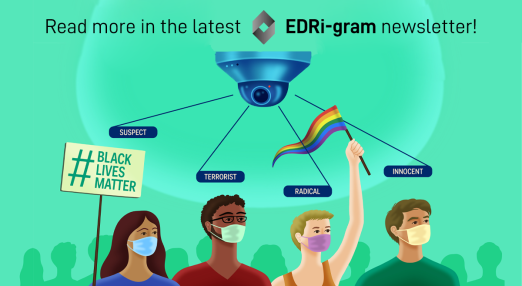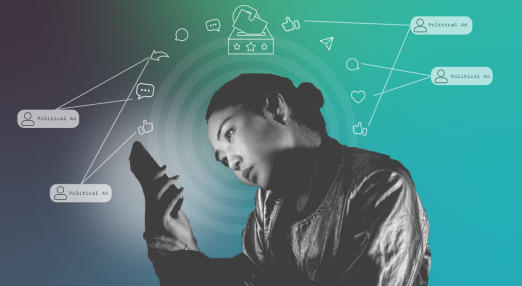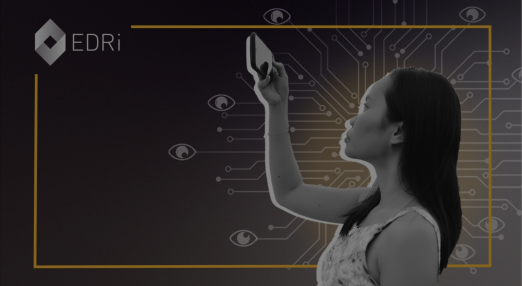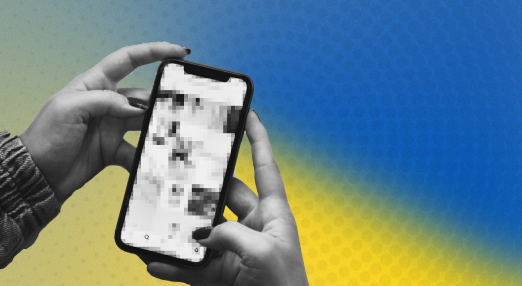Information democracy
Powerful companies and governments control the way the internet and new technologies are deployed. These actors blur the lines on corporate power in ways that have tremendous impact on people and democracies. The dominant business model of ‘Big tech’ platforms is based on surveillance, polarization and power imbalances. This ‘surveillance capitalism’ has had a global impact on democracy. For example, state and private actors can use the internet and technologies to spread political disinformation, to manipulate electoral results, to attack human rights defenders and to limit civic space.
Filter resources
-

European perspectives: Fight against disinformation by improving standards in journalism and empowering citizens
Disinformation cannot be suppressed by only regulation and laws, it is necessary to empower the media and journalists, invest in quality and independent journalism, as well as in democratic political culture, media literacy and digital literacy of the EU citizens, concluded the Gong conference “European Perspectives: Impact of Disinformation on Health” Democracy and the Digital Environment”.
Read more
-

Digital rights organisations call to dismiss the media exemption in the European Media Freedom Act
EDRi and our members Homo Digitalis, Access Now, EFN, Vrijschrift, and Državljan D are calling on the European Commissioners Vestager, Jourová and Breton to dismiss the ‘media exemption’ in the EMFA.
Read more
-

EDRi-gram, 4 May 2022
In this edition of the EDRi-gram, we urge the European Parliament to vote down the expansion of Europol's powers to prevent the enabling of mass surveillance. We also explore what could go wrong when a billionaire decides to buy one of the largest social media platforms. Join us in celebrating the success of EDRi member Defesa dos Direitos Digitais who got the Portuguese Constitutional Court to declare the unconstitutionality of the Portuguese data retention law.
Read more
-

When the political party votes for you: Can we have a fair election with surveillance political advertising?
A new regulation on online advertising was proposed last December to address political ads, which identifies in one definition, two techniques to deliver political ads: targeting and amplification.
Read more
-

Putting the brakes on Big Tech’s uncontrolled power
Will 2022 go down as the year the EU tamed Big Tech? In the very early morning hours of Saturday, 23 April, after 16 hours of final negotiations, EU lawmakers reached an agreement on the Digital Services Act (DSA), which is certainly a watershed moment for our digital future. As the deal reached is a top-level political agreement, the final text of the law is yet to be released.
Read more
-

EU negotiators approve good DSA, but more work is needed to build a better internet
Friday night’s political agreement on the Digital Services Act (DSA) is a good first step towards protecting people’s rights on the internet and to some extent limiting the immense power that Big Tech companies have over people and democracies.
Read more
-

EDRi-gram, 20 April 2022
In this edition of the EDRi-gram, we look at how you can influence the AI Act in order to ban biometric mass surveillance across Europe. We also raise our concerns with the new Cybercrime Protocol which threatens to undermine our privacy to compensate for the rising powers of law enforcement authorities. Don't miss out to learn who the biggest data sinners of the last year are, join the German Big Brother Awards 2022. In previous years, the Big Brother Awards have placed a spotlight on threats to privacy and basic rights, including loyalty cards, credit scoring, toll cameras, colour photocopiers or mobile phone surveillance.
Read more
-

EDRi-gram, 6 April 2022
In this edition of the EDRi-gram, we look at what the facial recognition company Clearview AI is doing with our faces in the Ukrainian war and how we can put stop the private company from exploiting the war. We also urge the French Council Presidency to follow through on its promise to ensure that a final deal on the DSA prohibits the use of sensitive data, including the drawing of inferences about a person’s sensitive characteristics, to display advertisements.
Read more
-

The Domino Effect of Internet Blocking in Romania
The Council of the European Union’s decision, which came out on 1 March, to block access to the media outlets Russia Today (RT) and Sputnik, looking to stop the spread of disinformation, set forth a domino effect in Romania for internet blocking.
Read more
-

EDRi-gram, 23 March 2022
In this edition of the EDRi-gram, we look at the leaked opinion of the Commission which sets off alarm bells for mass surveillance of private communications. The newly-revealed opinion confirms the fears that EDRi and 39 other civil society groups recently raised about the proposal which could destroy the integrity of private online communications across the EU, and set a dangerous precedent for the world. We are also urging for real solutions to the flaws of the law guarding our data protection and privacy. Though a new record of high fines based on the GDPR was issued in 2021, people still face barriers to exercising rights like access to remedy and benefiting from a harmonised enforcement mechanism.
Read more
-

Not everything is allowed in politics: Upcoming political advertising legislation must introduce limits
In November 2021, the European Commission launched a proposal for a regulation on the transparency and targeting of political advertising. The document will place harmonised rules for more transparency of political advertising to facilitate the sector’s internal market. Now, it is the European Parliament’s turn, specifically the IMCO (Internal Market and Consumer Protection) Committee to lead the legislative process.
Read more
-

Propaganda cannot be silenced with censorship, freedom of expression can
By order of all governments in the European Union, internet providers and platforms are blocking access to Russian state media. However, European governments would do better to stimulate the independent media in both Russia and Ukraine.
Read more
